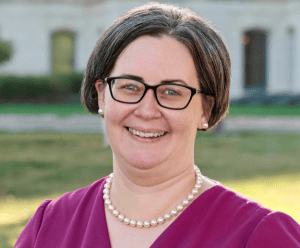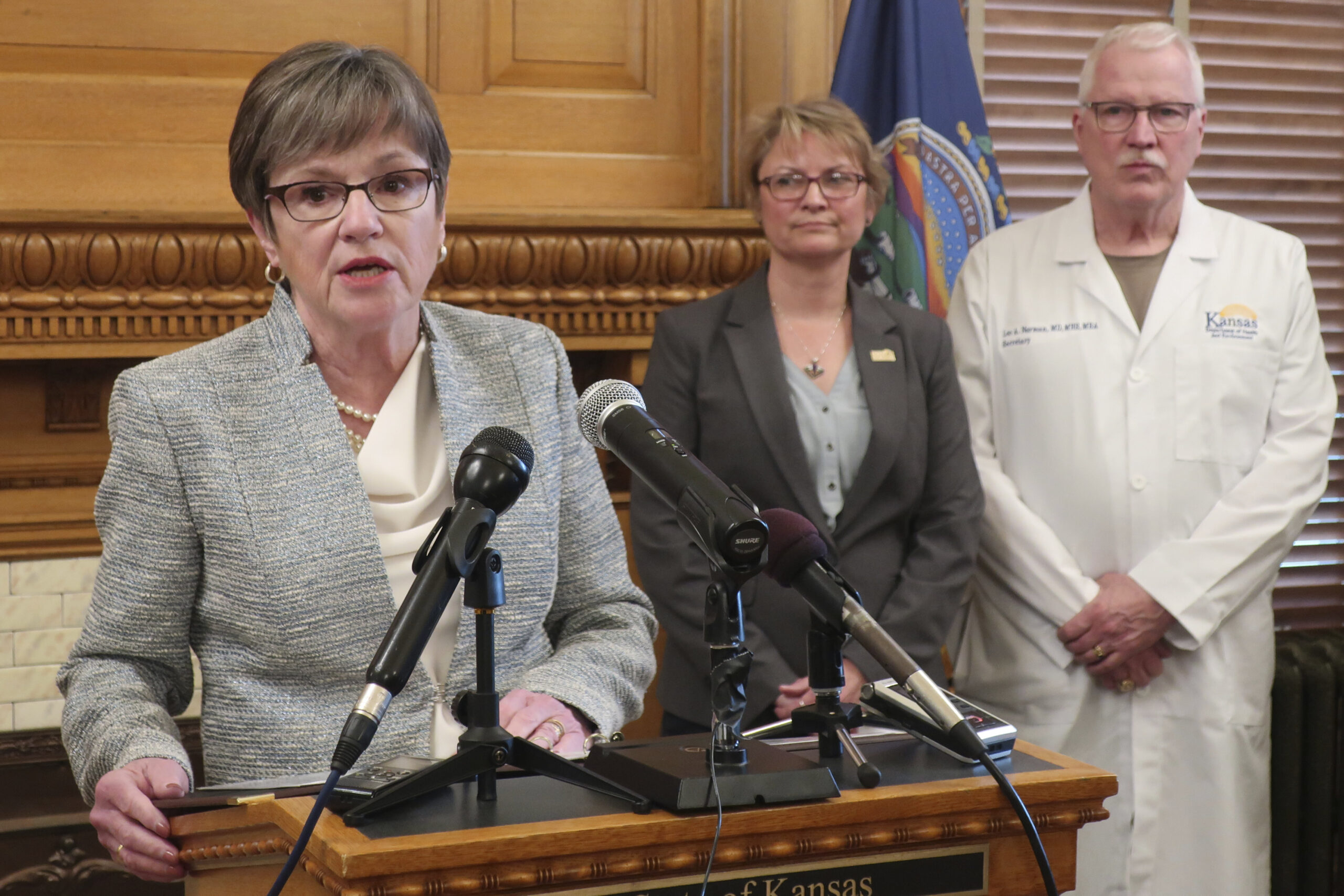The authority to restrict public gatherings by state or local health departments, a controversial mandate used during the pandemic, would be outlawed by legislation under consideration in the Kansas Senate.
In addition, SB 391, The Constitutional Right to Health Freedom Act, revokes the authority of the secretary of the Kansas Department for Health and Environment (KDHE) to:
- Designate infectious diseases by rules and regulations
- Order individuals to isolate or quarantine
The legislation is in response to controversial mandates imposed by government health officials during the pandemic.

Bill supporter Sen. Mark Steffen, an anesthesiologist, told the Senate Committee on Public Health and Welfare the measure will “reposition public health to an advisory role”:
“Just like the World Health Organization (WHO), the Centers for Disease Control (CDC), and the National Institutes of Health (NIH); they educate and recommend, they do not mandate. This bill stops no bureaucrat from doing anything they can’t do now, except force their will on individuals who did not elect them.”
Steffen added:
“Masks, lockdowns, closures, ginned-up inaccurate tests, no early treatments, a gene-altering medical procedure termed a “vaccine”; that’s the legacy of public health today.”
Dr. Galyn Perry, an Olathe pulmonologist, testified she supports SB 391 because of misinformation during the pandemic from public health agencies:
“As a reminder, COVID had an infectious fatality rate equivalent to influenza; that is fact. The CDC has actually downgraded all the deaths by 50% because of people dying with COVID rather than from COVID. (Dr.) Tony Fauci told Congress that the six-foot social distancing recommendation was just a recommendation; there was no science. I have actually 150 articles showing masks do not work, nor did they ever work, and yet we have citizens walking around with masks on, and as a pulmonologist, I know that lowers their oxygen levels and increases their carbon dioxide levels, which is harmful to their health.

“We talked about closed schools, lost learning, and I will mention to you the American Academy of Pediatrics has actually changed the childhood developmental milestones. Children usually develop at the same rate, but that was changed in February 2022 because children did not learn to speak because they could not see people’s faces. Children’s Mercy Hospital opened a new mental health clinic, expecting 3,000 children to show up in the first year. They had over 3,000 children in the first two months. We’ve created a mental health crisis.”
Dr. Perry is one of a group of Kansas doctors speaking to community organizations on the effects of COVID mandates.
Opponents to the bill were led by Ashley Goss, Deputy Secretary of KDHE, who warned:
“Without public health mitigation efforts, the impact of infectious disease outbreaks will increase and have a human and financial impact on individuals, families, health care systems, and public health. We ask the committee not to pass this bill as it would undo hundreds of years of public health work that has helped control the spread of infectious and contagious diseases in our state.”

Heather Braum, Health Policy Advisor with Kansas Action for Children (KAC) cautioned an outbreak of measles is near:
“ SB 391 would remove the power of time-tested tools like quarantines and restricts collaboration among our state and local health officials to stop these outbreaks.
“What’s at stake? While some of the population is vaccinated against these diseases, some children are too young to receive standard immunizations. Outbreaks must be stopped quickly through infectious disease outbreak response tools.”
Sen. Mike Thompson asked Goss if the bill would significantly alter her organization’s ability to advise local officials, including school boards, in the event of a health emergency:

“You’re (KDHE) providing recommendations, and this bill just changes your power to recommending and advising rather than setting rules and regulations; I don’t see a big difference.”
Goss countered:
“I disagree with you. This bill takes away the authority of local public health and the state health department to work congruently with our partners to stop the spread of disease. We would no longer have any reason or authority to help locals with this whatsoever or dispense information to anyone.”
If approved, the legislation would be considered by the full Senate.




